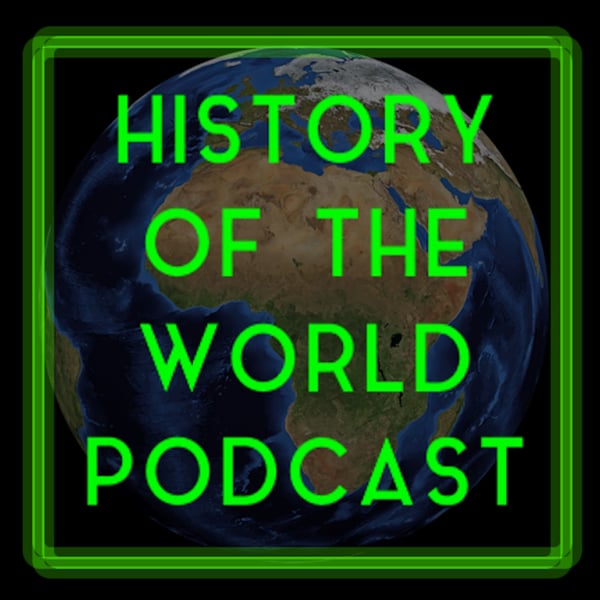Vol 3 Ep 68 - Ancient China: The Han Dynasty, Part Two
History of the World podcast
Chris Hasler
4.8 • 971 Ratings
🗓️ 25 April 2021
⏱️ 48 minutes
🧾️ Download transcript
Summary
108 BCE - 208 CE - While trade and subjugation brings wealth, corruption and warfare brings expense, and The Han Dynasty's later years tells the story of this precarious balancing act and its consequences.
--- Send in a voice message: https://podcasters.spotify.com/pod/show/historyoftheworldpodcast/messageTranscript
Click on a timestamp to play from that location
| 0:00.0 | The History of the World Podcast, written and presented by Chris Hasler |
| 0:15.2 | Volume 3 the Classical World |
| 0:19.6 | Episode 68 The Hand Dynasty. Part 2. Oh, In our previous episode we described how Emperor Wu became the Emperor in the year 141 |
| 0:58.0 | BCE. |
| 1:00.0 | Emperor Wu had decided that he wanted to be a strong emperor and where his predecessors |
| 1:07.0 | had looked to pacify their mighty nomadic step neighbors to the north that Sionnu Empire, Emperor Wu decided that he wanted to gain a political |
| 1:17.1 | advantage in their tense relationship and was prepared to take military action |
| 1:22.4 | to ensure the balance of power and was not against Han China. |
| 1:27.0 | Emperor Wu would use the strategy of expanding his borders in order to gather more wealth |
| 1:35.6 | and manpower to support the cause of the ongoing war with the Tsionnu. |
| 1:41.5 | It's possible that the Tsionknew were complacent about the abilities and aggressive |
| 1:46.3 | inclination of their Chinese neighbours, but the Han was successful in taking back |
| 1:51.3 | influence over the borderlands between themselves and the Tionnu |
| 1:55.7 | and would achieve success in the Ordos Loop, the Gobe Desert and the Hexi Corridor. |
| 2:08.1 | Control of thexie Corridor. Control of the Hexie Corridor was quite important too as it was a recently discovered pathway to new trading opportunities on a transcontinental scale not realized on any |
| 2:15.7 | significant scale previously. So everything was pointing in the right direction |
| 2:21.7 | for Han China and Emperor Wu in the first 35 years of his |
| 2:26.6 | impressively long reign and he had turned China into a nation more large and powerful than ever. |
| 2:35.2 | The biggest challenge about having a large and powerful empire is keeping a large and |
| 2:40.8 | powerful empire. Emperor Wu would have to alter his methods of taxation |
| 2:46.7 | and changes are often not well received. |
| 2:51.1 | New taxation was applied to salt, iron and wine in order to sustain the expense of |
... |
Please login to see the full transcript.
Disclaimer: The podcast and artwork embedded on this page are from Chris Hasler, and are the property of its owner and not affiliated with or endorsed by Tapesearch.
Generated transcripts are the property of Chris Hasler and are distributed freely under the Fair Use doctrine. Transcripts generated by Tapesearch are not guaranteed to be accurate.
Copyright © Tapesearch 2025.

